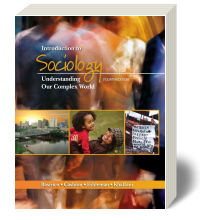Laurence Basirico person
Laurence "Larry" Basirico earned his BA in sociology from Hofstra
University (1972) and his MA (1974) and PhD (1983) at Stony Brook University. He is
professor of sociology at Elon University where he has been since 1983. He was chair of
the Department of Sociology and Anthropology from 1994 to 2004 and resumed his role
as department chair in 2009. Dr. Basirico’s research primarily has been in the areas of
social interaction, identity, socialization, the family and culture—as applied specifically
to rock groups, arts and crafts communities, family reunions, and marital relationships.
His major teaching areas are introduction to sociology, self and society, and the family.
Dr. Basirico was also dean of international programs at Elon for five years (2004 to
2009), spearheading one of the most successful study abroad programs in the United
States and overseeing efforts to internationalize the campus. While he was dean, Elon
won the prestigious Paul Simon Internationalization of the Campus Award, the highest
award given by NAFSA: Association of International Educators.
In 1988, he joined forces with J. Ross Eshleman and Barbara G. Cashion to write
Sociology: An Introduction (Scott Foresman, Little Brown, and then with HarperCollins
Publisher), the precursor for this textbook. That book was one of the first sociology
textbooks that focused on how students could apply sociology in their lives. He assumed
primary responsibility for Introduction to Sociology with BVT Publishing beginning
with the 4th edition.
Dr. Basirico is married with three children and lives in Burlington, North Carolina.
He is a lifelong music lover and learner dedicated primarily to guitar these days, but with
a background in piano. He regularly walks around golf courses chasing a little white ball
into never-before-seen natural habitats.
Akil Khalfani person
Dr. Akil Kokayi Khalfani is the Director of the
Africana Institute and Associate Professor of Sociology
at Essex County College. He is a founding
board member of the African Credit Union in
Newark, New Jersey.
Dr. Khalfani is the author of The Hidden Debate:
The Truth Revealed about the Battle over Affirmative
Action in South Africa and the United States (Routledge
2006), which was nominated for two national
awards: the Oliver
Cromwell Cox Award
and the American
Sociological Association’s
Distinguished
Book Award. He has
written articles and
book chapters on Pan
Africanism, racial
classification in South
Africa, and population
statistics.
Dr. Khalfani has a
Ph.D. and a Masters
degree in Sociology
from the University of Pennsylvania, from which he
also earned a Certificate in African Studies. Additionally,
he studied in South Africa at the University of
Pretoria.
He grew up in South Central Los Angeles and
now lives in Northern New Jersey with his wife and
four children.
J. Ross Eshleman person
J. Ross Eshleman, PhD, received his doctorate from Ohio State University and is now professor emeritus at Wayne State University. His past teaching experience includes serving as department chair of sociology at Wayne State University and Appalachian State University, two Fulbright grants to the Philippines at the University of Santo Tomas and De La Salle College, a year with the National Science Foundation, and two university teaching awards.
Dr. Eshleman has directed five institutes for teachers of high school sociology with grants through the National Science Foundation. His publications include numerous editions (ten of his own and two co-authored) of a sociology of the family text.
Barbara Cashion person
Barbara G. Cashion received her PhD from the University of Maryland and taught at a variety of universities, including Georgetown University in Washington, D.C., and Shippensburg University of Pennsylvania. She has special interest in the sociology of medicine and has worked in group health insurance settings at the National Institute of Mental Health (NIMH) and in the pharmaceutical field.
Dr. Cashion has published on related topics in a variety of journals. She is currently retired from teaching and is living in Hagerstown, Maryland. There she continues to develop her interests in music and fine arts, especially in the sociology of American art. Dr. Cashion has two daughters and four grandchildren.

